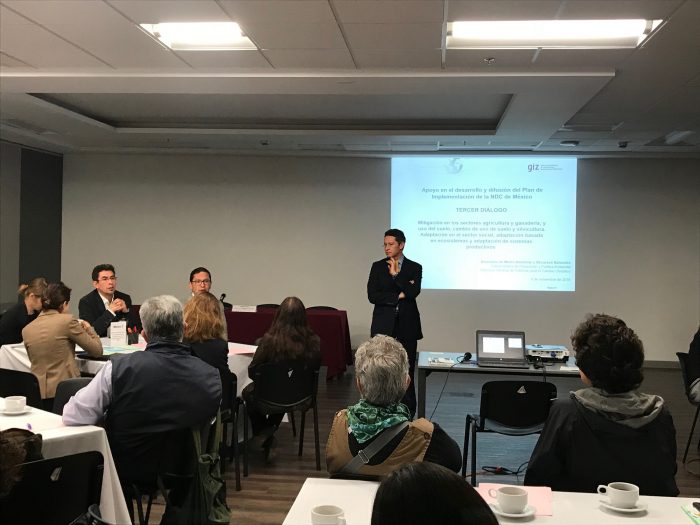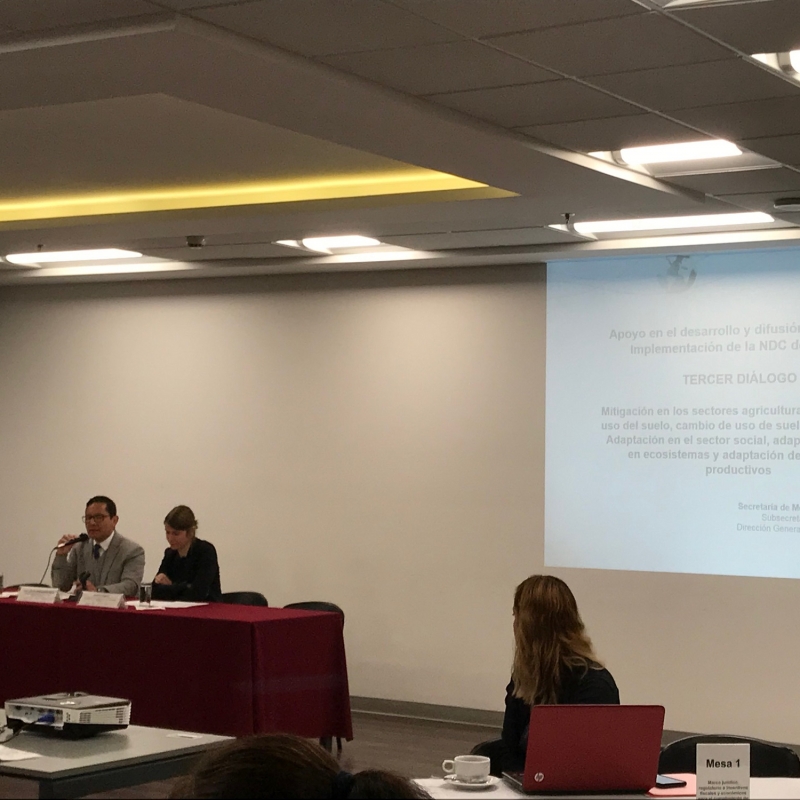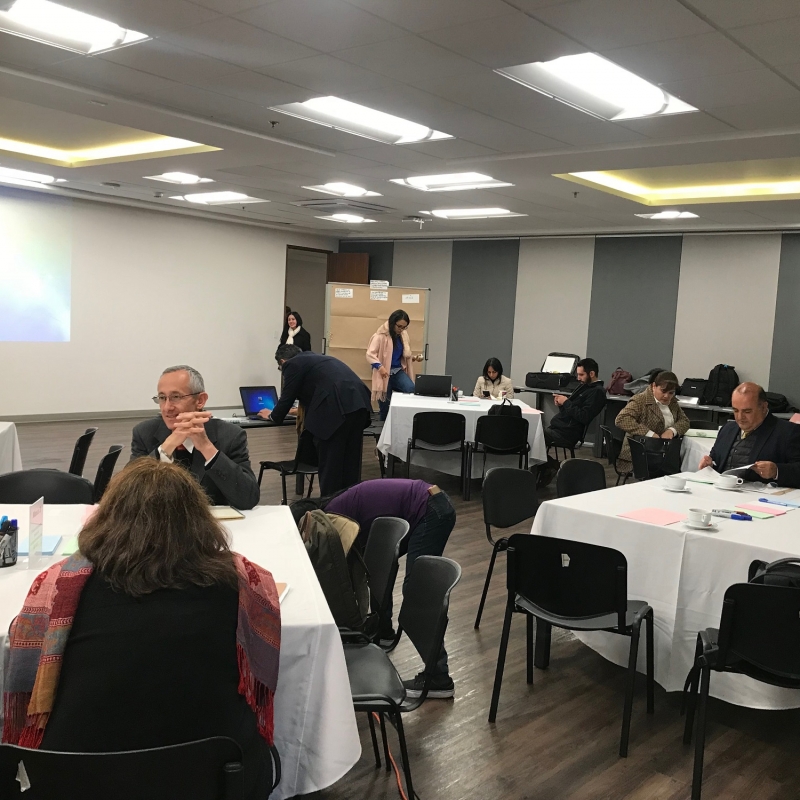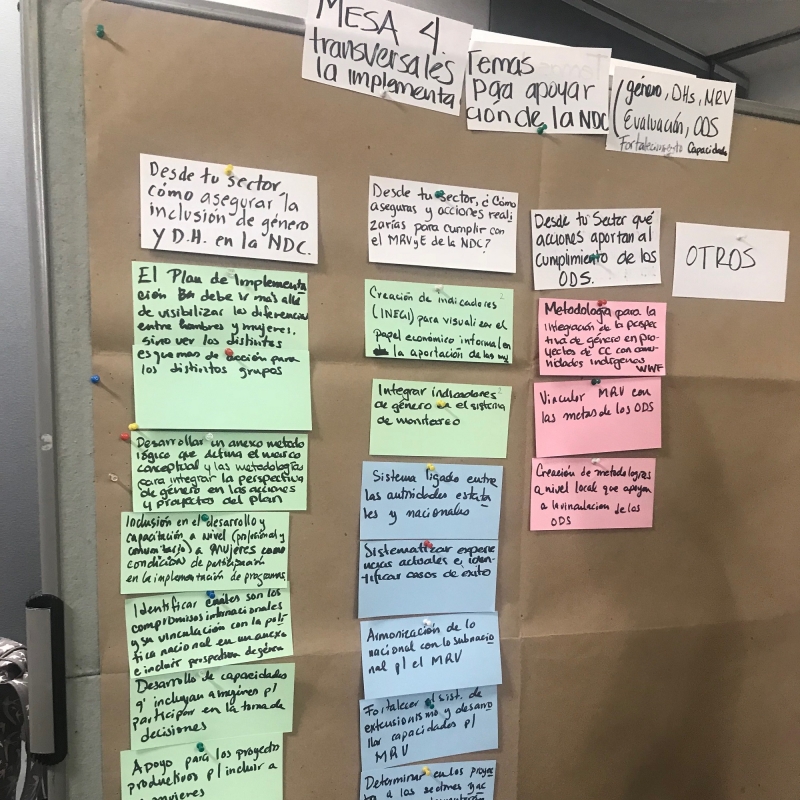Third Dialogue for the Implementation of the NDC
The Mexican-German Climate Change Alliance of the Deutsche Gesellschaft für Internationale Zusammenarbeit (GIZ) GmbH helped the Ministry of the Environment and Natural Resources (SEMARNAT) with the development of four dialogues aimed at defining the content and narrative of Mexico’s Nationally Determined Contribution (NDC) Implementation Plan.
On November 6, 2018, the third dialogue was held at the SEMARNAT offices in support of Mexico’s NDC Implementation Plan, in which experts and representatives from the agriculture and livestock, as well the Land Use, Land-Use Change and Forestry (LULUCF), sectors were invited. The dialogue focused on Ecosystem-based Adaptation (EbA) and on adaptation in the social sector and of production systems. Proposals were presented for the content, structure and narrative of the plan, as a basis for opening a space for dialogue between experts on specific topics.
Mexico’s progress towards adaptation was presented, beginning with the fact that Mexico was a pioneer in including adaptation commitments from the Paris Agreement in its national policies. In this dialogue, key questions were asked about the legal framework, climate financing, the institutional framework and cross-cutting issues to be included in the Implementation Plan.
The importance of pursuing adaptation actions for the country was highlighted, as the results and co-benefits of these are key to the resilience of different productive sectors, and to increasing social equality and respect for human rights, which leads to sustainable development. Adaptation actions should increase the capacity of all actors that form part of the value chain of the different climate sectors. In addition, regional and sectoral measures must be established and prioritized.

As part of the dialogue, there was discussion about how to strengthen the participation of academia, research institutions and civil organizations so that practices related to agriculture, production and EbA can be improved. One example given was the innovative approach of the Sierra Gorda Ecological Group in Querétaro.
The participants agreed that the Implementation Plan should establish financing mechanisms that support access to agricultural conservation and sustainability technologies; promote regenerative urban agriculture projects; include vulnerable groups (especially women) and take affirmative actions to reduce inequalities related to, for example, land access; and ensure sustainable use of ecosystems and biodiversity. Also highlighted was the need to include social and environmental safeguards in the Hydrocarbons Law to ensure that bidding processes include mitigation and adaptation guidelines for energy projects.
Participants also suggested that the Implementation Plan review the programs, financing and incentives that promote an unsustainable use of territory or potentially have harmful effects on producers. Two examples of such projects were an initiative by the Trust Funds for Rural Development (FIRA) that finances the introduction and exploitation of palm oil in Campeche, and the Ministry of Agriculture, Livestock, Rural Development, Fisheries and Food (SAGARPA) supported Livestock Development Program (PROGAN); both projects expand agricultural and livestock borders to the detriment of plant cover.



